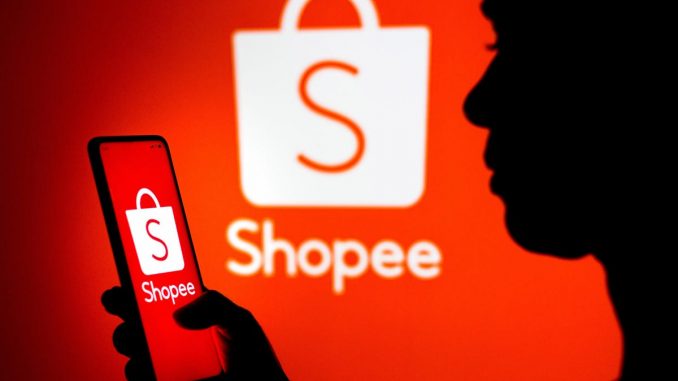
A new home furnishings digital marketplace adds to the company’s significant investments in the B2B … [+]
Blackstone Inc., the giant private equity investment firm that is already the largest owner of commercial real estate in the world and the most active investor in distribution center facilities in this country, is doubling down on another of its investments in the business-to-business sector with the launch in January of its JuniperMarket online B2B marketplace.
Set up in conjunction with its International Market Centers unit that is the largest wholesale market center operator in the home furnishings space, with facilities in Atlanta, Las Vegas and High Point, NC, Juniper is in fact a suite of digital services led by this new marketplace that connects vendors in the furniture, home and gift sectors, as well as apparel, with retailers selling those products. It allows companies to conduct buying and selling transactions online, an increasingly important element of commerce, especially during the pandemic era.
“We want to be at the intersection of commerce,” said Tyler Henritze, head of strategic investments for the Americas for Blackstone Real Estate, said in an exclusive interview. “We have the opportunity to create the dominant B2B omnichannel marketplace and we believe long-term that people will need to fully integrate the digital and physical spaces.”
Blackstone has had the physical side of the B2B side of the business since it entered the field with its purchase of IMC in 2017 from its prior ownership under Bain Capital
BCSF
But the JuniperMarket launch, more than 18 months in the making, takes Blackstone and IMC into the burgeoning digital marketplace side of the business where vendors and buyers transact purchases online. It got off to a fast start with more than 1,500 brands selling three million skus contracted at its launch, according to Bill Furlong, CEO of Juniper. About half of those were in the home décor and furniture space, another 40% in gift merchandise and the balance in apparel, he said. Some 25,000 buyers and retailers pre-registered to sign up for JuniperMarket accounts but with just a few weeks under its belt Furlong said it was too early to offer any projections on the potential size of the business or its long-range prospects.
JuniperMarket is not alone in targeting the digital transaction business in the home and gift sectors. Faire, a start-up that has attracted strong investments from private equity, is generally recognized as the first to come online and is believed to be the largest such service currently in home. Another competitor that, like JuniperMarket, is connected to a physical market center is MarketTime, which is owned by the same parent company as the Dallas Market Center, Crow Holdings. There are also several smaller and fringe players trying to gain a foothold in the home and gift sector, which is believed to generate as much as $300 billion in annual sales at retail.
JuniperMarket, says Blackstone’s Henritze, has the competitive advantage of its size and scale. “We are able to create a seamless shopping experience and we believe the combination of our market centers and JuniperMarket is the best way to service buyers and sellers and it’s our strategy to be the market leader.”
During the pandemic conditions of the past two years, in-person attendance at physical trade show and market centers was down anywhere between 20% and 75% but Henritze sees attendance numbers rebounding, something the market has already seen with its initial shows so far in 2022.
As long and expensive as the development has been – the company says it has invested $100 million so far — Blackstone believes that marketplaces such as JuniperMarket with both a physical and a digital component will have a significant advantage. “The hardest thing to replicate is the physical marketplace,” he said.
Furlong, the Juniper CEO, interviewed at the January Las Vegas Market, agreed and said JuniperMarket’s integration of sales reps and sales agencies – a key middleman in the distribution of home and gift products – created the “ecosystem” that was needed. He said a strict separation of IMC’s role as a landlord and Juniper’s as a marketplace was a key component of the system, protecting vendor confidentiality.
And as much as both executives continued to stress the importance of physical shows and markets – “We are people and we need to see and feel products in person,” said Furlong — virtual transactions offer brand new possibilities. “We see our marketplace being used for both product discovery and the routine re-ordering process.
“But it’s also a unique opportunity for large retailers to see small lines and for small retailers to see large vendors,” something not always possible at physical events, Furlong added. “People will do different business in different ways” on JuniperMarket.
Certainly, having a powerhouse like Blackstone behind the venture has to be considered a plus. With more than $880 billion of assets under management, the firm is a huge property holder in addition to investments in credit and insurance and private equity funding.
And it continues to build on its role in the business-to-business space, now spanning from its vast distribution center holdings to its IMC unit. “We’re putting the full weight of Blackstone to this and we feel pretty good about JuniperMarket so far,” said Henritze. “This is exciting.”
Note: The story was updated on Feb. 28 to refer to Blackstone as the “most active investor” rather than the largest owner of distribution center facilities in the country.

Leave a Reply